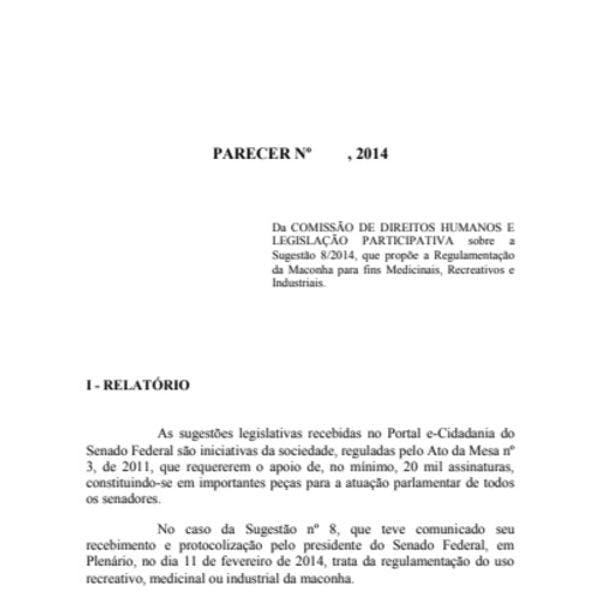Le Sénat brésilien débat de la réforme de la politique des drogues
Plus de 20 000 signatures ont été récoltées afin d’appeler le Sénat Brésilien à évaluer la politique des drogues actuelle, en particulier les politiques en matière de cannabis. Pour en savoir plus, en anglais, veuillez lire les informations ci-dessous.
Abonnez-vous à l'Alerte mensuelle de l'IDPC pour recevoir des informations relatives à la politique des drogues.
With regard to all the drugs, the reality is that Brazil, like other countries, is losing the fight against drug addiction. Current policies created in the context of the idea of the drug war have been insufficient to reduce consumption and dependence. And have exacerbated other problems. The prohibition as has been practiced is not giving the required effect on the problem size and creating two other problems: the drug war, with their victims; and the sentencing of young users, treated as criminals, whom after prisoners are socially condemned many times definitively. As the drug war policy has focused primarily on strengthening police repression mechanisms, the whole society ends up being affected.
Mounting a heavily armed police state and a major consumer of weapons and their components ends just putting pressure on the government machinery and the way in which the state relates to the application of repressive laws and society. The testimony of Colonel Jorge da Silva, former chief of the Military Police of Rio de Janeiro, in the hearing held on last August 11, was very clear in this respect, showing that the logic of war causes imbalance in democracy and has a strong correlation with mortality of black and poor young people on the outskirts of cities.
Other consequences of this are known. On one hand, the drugs are used in small doses for reducing stress, fun, filling existential voids. But in large doses, the overwhelming cost of violence, directly or by accidents, cause human degradation, lack of social and economic integration, focus on depression, and relate to different forms of suicide and serious diseases, both physical and mental. Added to this drug-trafficking violence, police violence, corruption and the consequences of imprisonment of young users. Nevertheless, the social problem of drug and the individual right to its use have not been discussed at the level they should.
Keep up-to-date with drug policy developments by subscribing to the IDPC Monthly Alert.
